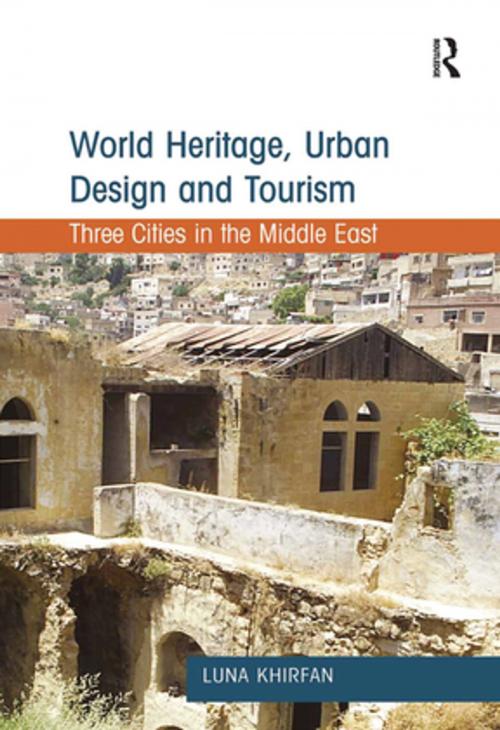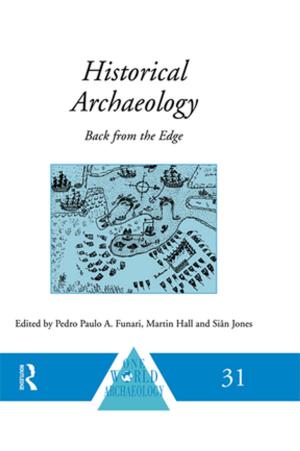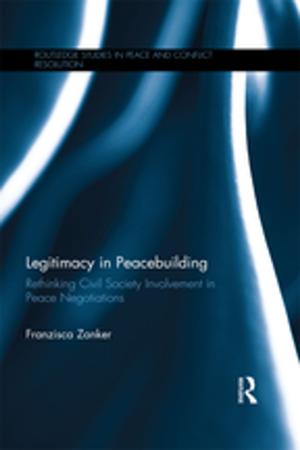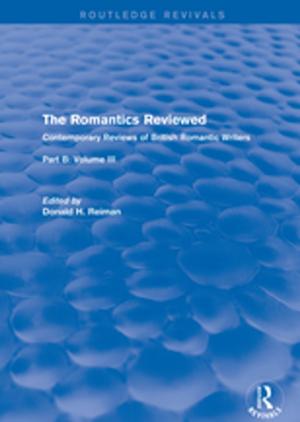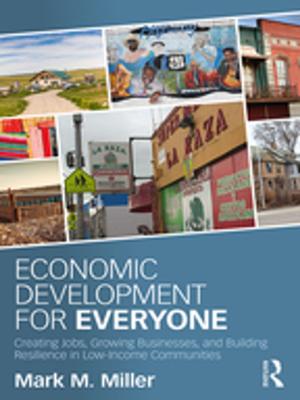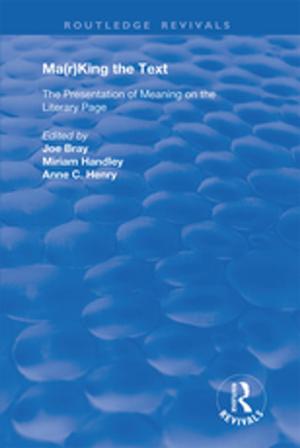World Heritage, Urban Design and Tourism
Three Cities in the Middle East
Nonfiction, Social & Cultural Studies, Political Science, Politics, City Planning & Urban Development, Art & Architecture, General Art| Author: | Luna Khirfan | ISBN: | 9781134784790 |
| Publisher: | Taylor and Francis | Publication: | February 11, 2016 |
| Imprint: | Routledge | Language: | English |
| Author: | Luna Khirfan |
| ISBN: | 9781134784790 |
| Publisher: | Taylor and Francis |
| Publication: | February 11, 2016 |
| Imprint: | Routledge |
| Language: | English |
Urban planners and conservationists in historic cities around the world grapple with the competing interests of conservation, urban design, and economic and social development. This book offers an interdisciplinary approach to the key relationships between heritage conservation, city space design, and tourism development in historic cities, linking theory and practice in a unique way. The book offers an investigation of three Middle Eastern historic cities, Aleppo, Acre and Salt, all of which face significant challenges of heritage conservation, adaptation to contemporary needs, and tourism development. It presents practical scenarios for the conservation and design of historic urban spaces and the development of sustainable tourism, from the perspective of planners, local communities and international tourists. The author offers a comparative approach which transcends political strife and provides valuable lessons for the other cities inscribed on UNESCO's World Heritage List, especially those in developing countries.
Urban planners and conservationists in historic cities around the world grapple with the competing interests of conservation, urban design, and economic and social development. This book offers an interdisciplinary approach to the key relationships between heritage conservation, city space design, and tourism development in historic cities, linking theory and practice in a unique way. The book offers an investigation of three Middle Eastern historic cities, Aleppo, Acre and Salt, all of which face significant challenges of heritage conservation, adaptation to contemporary needs, and tourism development. It presents practical scenarios for the conservation and design of historic urban spaces and the development of sustainable tourism, from the perspective of planners, local communities and international tourists. The author offers a comparative approach which transcends political strife and provides valuable lessons for the other cities inscribed on UNESCO's World Heritage List, especially those in developing countries.
